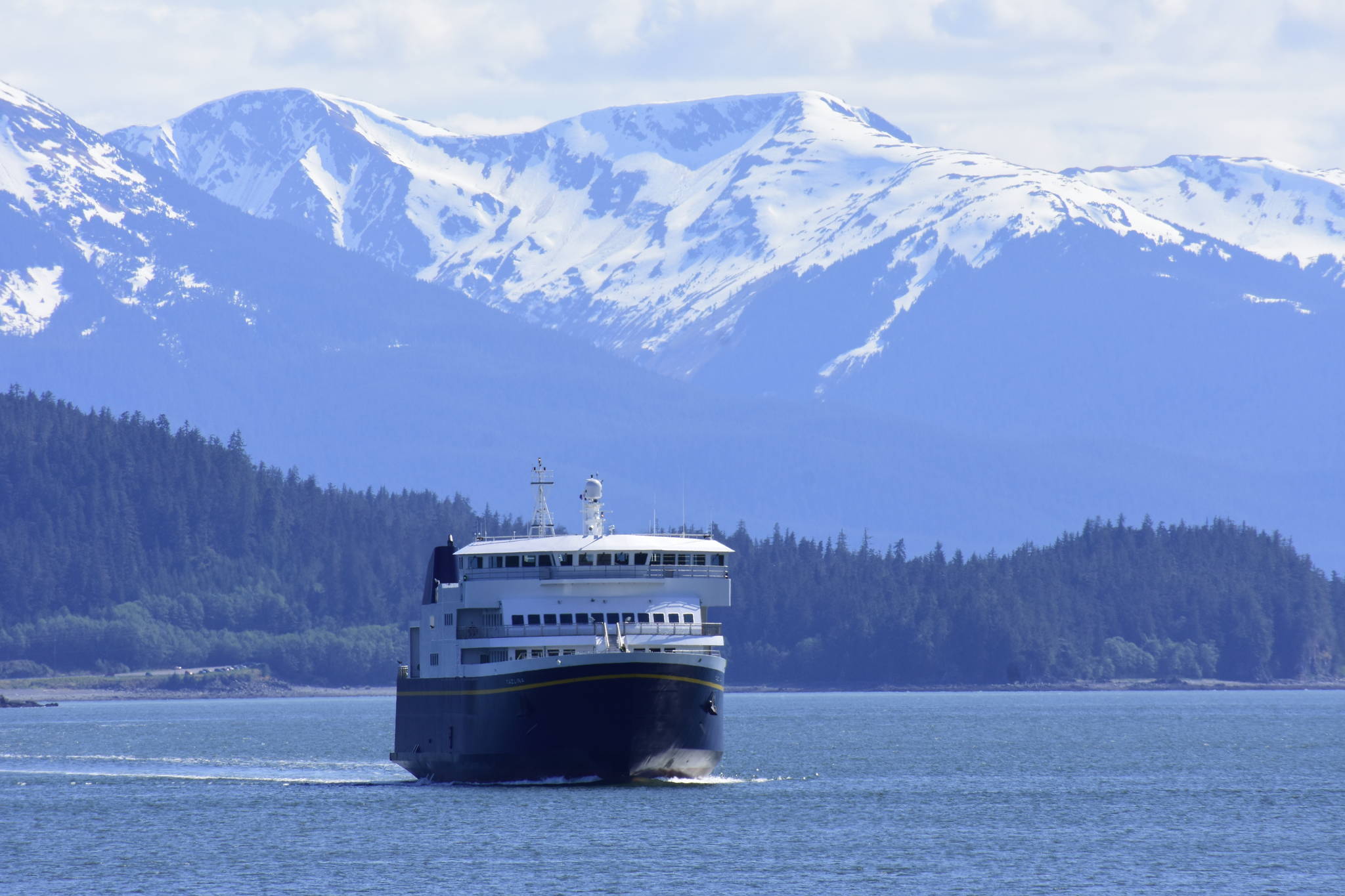The state’s ferry system could receive a bump in funding this year, but the Alaska Marine Highway system still faces multiple significant challenges.
Even with an increase in funding from last year, the beleaguered state ferry system faces a steep climb coming out of 2020. The coronavirus pandemic drastically cut back the number of passengers able to travel on the ferry and sent state finances into disarray even as the AMHS was struggling with budget cuts and reduced service.
Gov. Mike Dunleavy’s proposed budget allocates just over $103 million for the fiscal year 2022 budget, up from the $95.8 million in 2021, according to Rob Carpenter, deputy commissioner of the Department of Transportation and Public Facilities. DOT hasn’t yet asked for a supplemental budget, but AMHS still has a $6 million deficit from last year.
Speaking to a House Transportation and Public Facilities Finance Subcommittee meeting Tuesday Carpenter said he looked forward to working with the Legislature to fix the deficit.
[Long-awaited ferry reshaping report released]
The governor’s proposed budget would have three AMHS vessels in layup for an entire year, and three additional vessels taking three and four-month layups, two of them during winter months, according to Carpenter’s presentation.
But much of AMHS’ issues lie in its inability to plan for the long-term, according to Tom Barrett, a retired Coast Guard admiral who chaired the governor’s AMH Reshaping Work Group.
The group was commissioned prior to the pandemic to draft recommendations for reshaping AMHS. That group released its final analysis in October, but the recommendations received a cool reception from stakeholder groups.
There is no way the ferry system could currently exist without a state subsidy, Barrett told the Greater Juneau Chamber of Commerce in November, and the system is not yet in a place where it could be divorced from politics.
That was a concern raised by the subcommittee’s chair, Rep. Dan Ortiz, I-Ketchikan, and other lawmakers at the meeting. Ortiz said he had sent several technical questions to DOT regarding the governor’s proposed future vessel replacement plan and its impact on future services but was told by the department those questions couldn’t be answered by Tuesday’s meeting.
“I was disappointed we were not able to get the answer to those questions today,” Ortiz said at the meeting, “but we look forward to hearing the answers in the very near future.”
However, the pandemic has also provided relief funding, including CARES Act funding, that has bolstered AMHS’ budget.
There is additional infrastructure money included in the $1.9 trillion American Rescue Plan Act expected to be passed soon by Congress, Carpenter said.
Alaska Department of Transportation and Public Facilities is working on selling the state’s two fast ferries, Carpenter said, but declined to provide additional details beyond saying a sale was ongoing. The money from the sale would go to a fund designated for vessel construction or major maintenance, he said.
A bill from House Speaker Louise Stutes, R-Kodiak, would create a nine-member AMHS Operations Board to assess and suggest marine business practices. Stutes, a Republican from a coastal community, cited ongoing support for the ferry system as one of her reasons for caucusing with Democratic and independent lawmakers.
Frequent policy changes and lack of long-term objectives were frequent challenges for AMHS, Stutes said in a statement, and an advisory board would provide professional advice to help guide the system.
But any major overhaul was going to be a two-year process, said Rep. Sara Hannan, D-Juneau, who co-chairs the full House transportation committee. Legislatures last for two years, she said in an interview Tuesday, and large pieces of legislation typically take more than one year to pass. Given the pandemic, it was difficult to say what kind of legislation other than the legally required pieces such as the budget the Legislature would be able to pass, she said.
However, the governor’s suggested increase in funding was at least an acknowledgment of the system’s importance to coastal communities, Hannan said.
“It’s an acknowledgment that when you’re taking out the AMHS, you’re really crippling (coastal) economy,” she said.
• Contact reporter Peter Segall at psegall@juneauempire.com. Follow him on Twitter at @SegallJnuEmpire.

